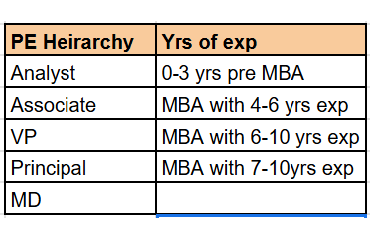
We would be keen to know what the professional community thinks is the legally compliant way out of a tricky situation that an individual faced at the professional workspace.
A candidate was working on an Information Security project for one of the Government entities. Looking for a job change, he interviewed with a US based company and was selected as the successful candidate. His joining date was first 28th November, 2024,that is one day after completion of his official 60 day notice period, but he was not relieved nor was he clearly told when would his last working day be. While serving the notice, the candidate tried to pull every possible lever with his employer but didn't succeed. He was told - 'this is a Government office and not a private company. That's how it's here.' From 29th November, 2024, he stopped going to the office, but that barely changed anything.
The US based company extended his joining date first by a couple of weeks to Mid December, 2024 and in fact, offered him to start working as he had already stopped going to his previous employer and furthermore, gave the candidate the flexibility to furnish the relieving letter as and when he received it. The candidate, worried that if he does so, his previous employer would confiscate his PF and he would have a even harder time getting his money out, was wary of joining without formal relieving. He also explored legal options but the consensus was that any action against government organizations would take years to start/conclude, and consume a lot of monetary resources, involve prolonged mental harrassment and hamper his future career prospects.
So, the candidate decided to decline the US company's offer, sit back at home till he got absolutely clarity on when he can leave his current employer, and then make his next career move.
The situation raises a critically important question - can employers, Government or non- Government, deny relieving after an employee has served her/his official notice period? Can they hold the F&F payments? Can they play with someone's career at their whims? What's the fast and easy way out? Employers don't wait for months or years to hire a candidate and a career opportunity has to be grabbed as and when it knocks the door.
Don’t stress about searching every career page or job site. Stay ahead with the latest opportunities from different sources right here!
Related Articles
You've gone through an education system that probably never taught you anything about professionalism, logical deconstruction, and comfort with ambiguity. You may have tremendous bookish knowledge, but lacking these three attributes is an immediate invisible red flag that will stop you from getting the job or the promotion you always wanted.
Let's throw some light on the top-5 common mistakes that highlight your lack of these attributes, and what you should be doing instead
- Showing up late without informing your interviewer/coordinator - there are genuine reasons one could be running late, but that needs to be duly communicated ahead of the planned interaction. Inform every marked on an invite, drop a text or give a call, but keep your stakeholders informed. Their time is as much valuable as yours.
- Turning up unprepared for the interview - if you are turning up unprepared, why is it that you are turning up at all? why waste your and interviewer's time? You are better off declining the opportunity, instead of ruining your reputation unnecessarily. You must invest 1 hour to read about the company, the opportunity, some information in the public domain and so on, if you have chosen to show up for an interview.
- Going silent instead of communicating effectively with your stakeholders - it might come as an insight but everyone knows you would evaluate multiple opportunities before chosing one, everyone knows that your decision might be influenced by your loved ones, and everyone is okay with your being unsure, but nobody likes to be left wondering about what might be happening. So, good, bad or ugly, communicate, communicate and communicate! You'll build more relationships that you ever thought, and you never know, one or more of these relationships may turn gold in the times to come.
- Rambling stuff that does not make sense - let us fill you in on another secret, nobody - not even the most successful individuals can know everything about everything in the world. So, when presented with topics/questions you have no clue about, you got to either draw parallels from what you have expertise on, rationally break down the information you are presented with to come up with simple yet logical answers, or admit you do not know anything about this but can talk about something relevant to the opportunity being discussed in detail.
- Demanding a bomb without a concrete rationale - the whole world is underpaid, friends! who doesn't want more, but that's not how it works. Your next compensation cannot ignore your current and/or previous compensations. If you chose to take a sabbatical, took an opportunity by taking a haircut, or become an entrepreneur that eventually did not work out, you have to make peace with your decision. Nobody else had a say in that! You can definitely demonstrate additional skills/knowledge that you acquired during this period (that surely has a value), but that value isn't the only figure on which your next compensation will be decided on. So, learn about the market standards and try to limit your ask within the broadly acceptable range.
Let’s be honest — job hunting today feels like swiping right on a dating app where no one ever replies. Employers can’t find the right talent, job seekers chase ghost listings, and somewhere between “We’ll get back to you” and “Position closed,” everyone loses their sanity.
Enter Aplushub — the career saver we didn’t know we needed.
Why Aplushub Exists
Born from the chaos of the modern job market, Aplushub was built on one bold idea — quality over quantity. It’s not just another job portal flooding you with random roles. It’s a curated ecosystem that blends AI precision with human insight to filter out the clutter and keep only what truly matters: authentic, relevant, and verified opportunities.
What It’s Solving
Aplushub is tackling the biggest pain in job search — noise. Fake jobs, expired links, spam recruiters, and endless scrolling are replaced by clean, credible listings. The platform categorizes openings into Free Jobs (posted directly by employers) and Premium Jobs (handpicked by Aplushub’s research team from trusted sources and networks). So, no more digital wild goose chases — only jobs worth your time.
Remote Jobs? Absolutely.
Whether you’re working from your couch in Chennai or a café in Manali, Aplushub’s got you covered. The platform features a dedicated Remote Jobs section — tailored for professionals who value flexibility. It connects you with employers who believe talent shouldn’t be tied to geography.
Why It’s a Win-Win
For job seekers, Aplushub is your career compass — one dashboard, hundreds of genuine opportunities, and no shady “DM for job” drama.
For employers, it’s a hidden gem. Posting is free, candidate access is simple, and you get applicants who are genuinely interested — not bots in disguise.
Bonus Perk: The *OpenBook* Advantage
Here’s where Aplushub really flips the script — OpenBook, its transparency-first feature. It gives job seekers a peek into real hiring insights, company trends, and recruiter updates, turning job search into a smarter, more informed experience. No more guessing what employers want; OpenBook hands you the inside scoop to make data-backed career moves.
The Price Tag (Spoiler: It’s Almost Free)
Aplushub keeps things real and affordable. You can explore its free tier, test-drive premium access with ₹50/Month, or go all in with ₹499 for a full year— basically less than your monthly coffee budget to land your next big opportunity.
So whether you’re hiring, hunting, or just tired of the chaos — Aplushub is here to bring sanity (and a smile) back to your career journey.
👉 Visit AplusHub.com — where jobs finally make sense.
Private Equity (PE) is one of the most coveted industries in finance. One of the highest paying industries, Private Equity (PE) attracts absolute creme-de-la-creme of MBA graduates, management consultants, and investment bankers. Also highly competitive, PE funds hire only a handful of investment professionals across levels in a year.
A+ research team has spoken to multiple PE professionals across domestic and global PE funds in India. In the table below, we have compiled average base compensation, variable (bonus) and carry components at blue chip global PE funds in India.
| Role | Yrs of exp | Large Global PE Funds (base salary) | Bonus (as a % of base) | Carry | |
| Analyst | 0-3 yrs pre MBA | $60K-$80K | 60-100% |
Notional Carry or LTI or Certain bonus is paid in the form of carry distribution in case of multi-billion dollar funds*
|
|
| Associate | MBA with 4-6 yrs exp | $100K-$150K | 80-100% | ||
| VP | MBA with 6-10 yrs exp | $200K- $250K | 90-120% |
Estimated 0.5%-2% of the carry pool for a multi billion dollar fund*
|
|
| Principal | MBA with 7-10yrs exp | $300K-$400K | 90-120% | ||
| MD | $500K+ | 100-150% | |||
| Notes: |
These figures are estimates of salaries at top global PE funds like Bain, Carlyle, TPG, Warburg Pincus, General Atlantic and the likes
|
||||
|
Buyout focused funds have 30-50% higher base salaires and respective bonuses
|
|||||
|
*These are estimates from the information gathered through our network; might change/vary with more data
|
|||||




